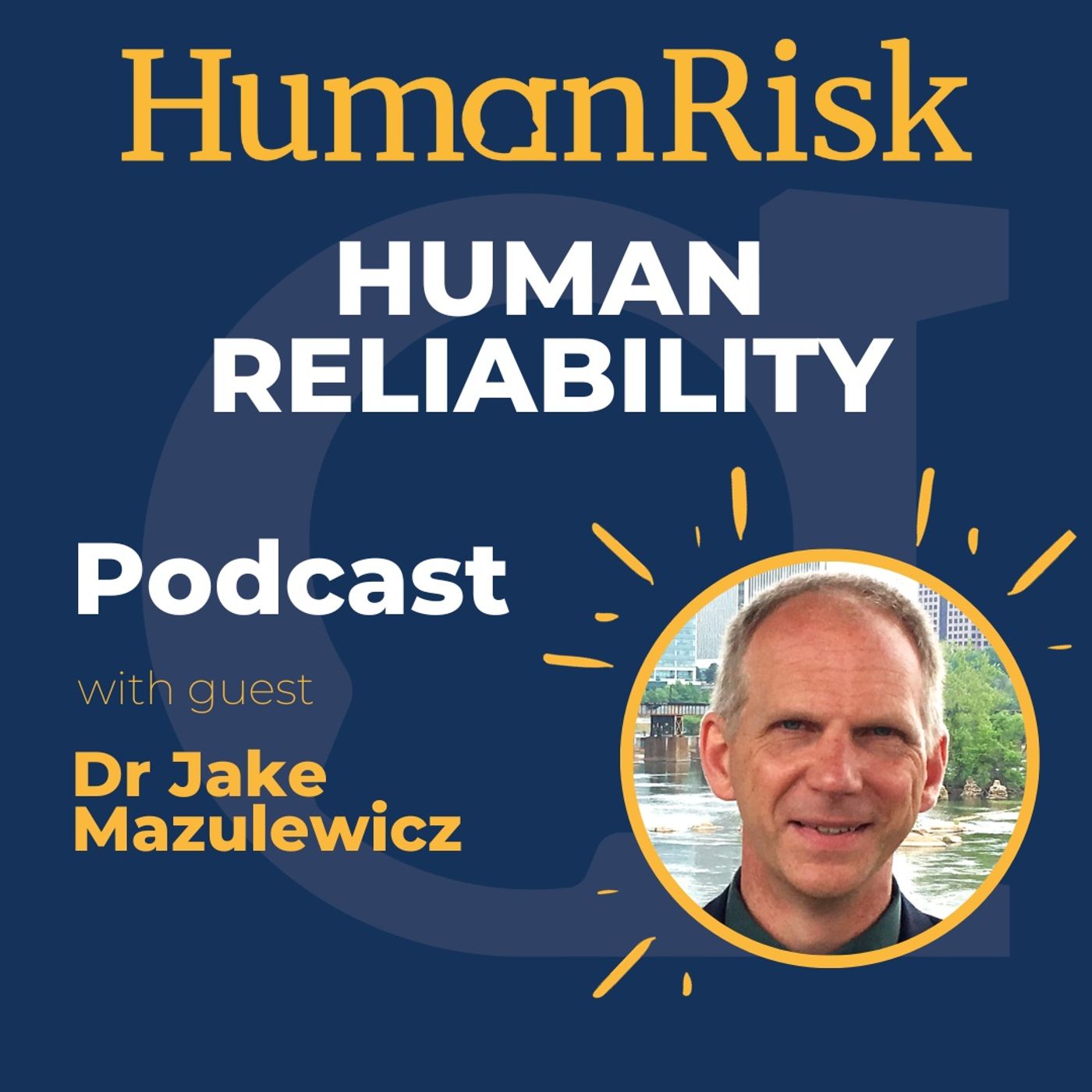Dr Jake Mazulewicz on Human Reliability

What do you think of when you hear the word 'error'? It's highly likely you'll think of it negatively as a defect. The obvious way to manage defects, particularly in safety-critical industries, is to have detailed procedures, strict compliance, and...
What do you think of when you hear the word 'error'? It's highly likely you'll think of it negatively as a defect. The obvious way to manage defects, particularly in safety-critical industries, is to have detailed procedures, strict compliance, and zero tolerance for errors. But we know that this doesn't always work. After all, if it did, we'd have far fewer errors.
My guest on this episode takes a different approach. He specializes in helping organizations, particularly safety-critical ones where the cost of getting something wrong can be death or injury, to reduce errors, improve safety and build trust. He calls this human reliability. His name is Dr. Jake Mazulewicz, and he's been a firefighter, an emergency medical technician and a military paratrooper.
Nowadays, he brings all of those experiences to bear in helping organizations design processes and cultures that allow humans to manage the complexities that don't always allow themselves to be neatly codified into standard procedures. As you'll hear, he's got some fascinating ideas about designing safety models that flex to meet the situation's needs.
Key Moments In The Show (mins:secs)
02:14 — Dr. Jake’s background
05:25 — Mechanistic vs. Adaptive systems
06:28 — The big problem: too many leaders treat ALL systems as Mechanistic systems
09:10 — What to say to a commercial pilot when you’re walking off their aircraft after the flight lands
10:40 — Four work guidance modes
11:00 — 1) Procedures
11:53 — 2) Guidelines like, “To find out what an organization values, follow the money."
13:00 — 3) Principles like “A jury doesn’t decide what to believe. A jury decides who to believe."
21:20 — 4) Tacit Knowledge — You can solve complex problems, but can’t explain how
26:40 — “All models are wrong, but some of them are useful.”
31:10 — How one team of electricians dramatically improved safety by using FEWER procedures
35:57 — Letter of the law vs. spirit of the law
38:20 — Have you heard of Philip K. Howard?... "Let’s pretend I haven’t.”
42:10 — We write rules when we don’t have enough trust
44:55 — Build trust by overcommunicating your intentions
45:25 — “Commander’s Intent” in military mission plans
47:55 — Listen for "Weak Signals" like hearing, “I’ll do whatever it takes…"
50:40 — Stay resilient by catching a system before it goes “exponential”
54:00 — Chris Argyris’ 17-word, 4-step recipe for creating a toxic work culture
57:10— A new Early Warning System
58:20 — Ask an expert, “What’s a 'Weak Signal' in your field, and what does it mean?”
1:04:55 — Why a non-punitive approach is so helpful and so uncommon
1:10:10 — How to get in touch with Dr. Jake — reliableorg.com
Further Information
To find out more about Praxtical Human Performance For Leaders visit www.reliableorg.com
LinkedIn: https://www.linkedin.com/in/jake-mazulewicz/



















